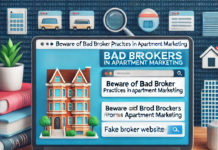This article was written by:
Lewis Robinson, Business Consultant and Writer.
When you run your own business, you can be so busy providing a service you lose sight of how you’re performing overall. You might have a gut feeling on how you’re doing; however, this doesn’t give you tangible information you can act upon to grow your business or become more efficient. What may feel like frustrating administrative tasks could make the difference between you successfully operating in ten years or not. It needn’t be number heavy; here are five metrics for you to keep an eye on that will help you measure success effectively.
New Versus Repeat Business
What percentage of your customer base are repeat purchasers, and how many new? These are important numbers to know. New customers cost more to bring in and tend to spend less initially. However, you must continue to win them as eventually an existing customer, no matter how loyal, will cease to need your offering. You need to research what a realistic new versus repeat business target is for your industry – a fairly standard ratio is 25:75 new versus repeat – then you can benchmark your own business against this, giving you a measure of how successfully you’re performing against your ratio goals.
Profits
An obvious metric, but if your achieving decent profit margins year after year, your business is successful. What you need to understand is why you’re successful so you can not only build on what works but also ascertain how sustainable it is. For example, if your success is due to a trend or a recent change in legislation, could there be a time limit on how long you have to benefit? Do you need to put measures in place to safeguard your business in the future?
Visitors to Your Website
For example, if you own a small plumbing business and your plumber marketing techniques are successful, they will drive prospective customers to your website to find out more about what you do and, ideally, procure your services. But it’s not enough to bring in a high volume of visitors if they don’t do anything once they’re there. You need to know what they do once they’re on your site as a minimum, but intelligent analytics tools can also tell you how long they spend browsing, and whether they even make it past the first page. Why is this important? Your website is your cheapest sales tool: drive people to it, and you have a captive audience ready to learn more. Get it right, and you’ll convert them on their first visit without having to spend money on follow-up communications.
Quote Requests
How many of your first-time website visitors go on to request a quote? Once you transition your customers from discovery to inquiry, they are further along their journey to purchasing from you and become a hotter prospect. Depending on how you quote, it also allows you to speak with your potential customer in person and answer any questions they have. The more web visitors you convert to quote requesters, the better a job your website is doing. If you start to track these numbers, you’ll be able to see how you perform week on week and can act accordingly to any learnings.
Social Media Marketing
Word of mouth marketing (WOMM) is the most powerful communication medium. 50% of Americans choose word of mouth as their preferred information source, while 72% of consumers trust online reviews as much as personal recommendations. If you’re doing a good job, make it easy for your customers to tell people. Ensure your social presence is up-to-date and engage with your audience frequently, and you’ll soon find they comment on your posts and leave reviews talking about the service you delivered. Your customers are your biggest advocates, and what they’re saying about you is a real-time measure of success.
Don’t rely on guesswork to tell you whether your business is successful. These simple measures are just a handful of the metrics you can use to gauge how well you’re doing. Listen to what they’re telling you and watch your business grow.
Lewis Robinson is a business consultant specializing in CRM and sales. He’s helped start several small businesses. He currently spends his time as a writer and personal consultant.





